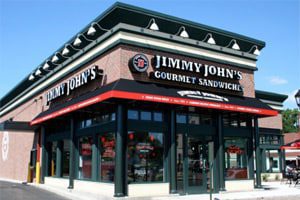
Vegetables used on sandwiches served at a Jimmy John’s restaurants in Denver, Colorado, are being blamed on an E. coli outbreak in that state. Eight people have reportedly become ill after they ate at three Jimmy John’s restaurants from October 5th to October 9th, Alicia Cronquist, an epidemiologist for the Colorado Department of Public Health […]
 Vegetables used on sandwiches served at a Jimmy John’s restaurants in Denver, Colorado, are being blamed on an E. coli outbreak in that state.
Vegetables used on sandwiches served at a Jimmy John’s restaurants in Denver, Colorado, are being blamed on an E. coli outbreak in that state.
Eight people have reportedly become ill after they ate at three Jimmy John’s restaurants from October 5th to October 9th, Alicia Cronquist, an epidemiologist for the Colorado Department of Public Health and Environment, told ThePacker.com. The diners had consumed sandwiches at Jimmy John’s, according to The Huffington Post.
Cronquist noted that, while sprout contamination has been blamed on earlier outbreaks involving Jimmy John’s, this E. coli outbreak does not appear to be associated with sprouts, according to ThePacker.com.
Colorado state officials and the U.S. Food and Drug Administration (FDA) are collaborating on the outbreak and indicated that, as of November 1st, they did know which produce is contaminated, ThePacker.com wrote. Both the FDA’s national and Denver offices are working with the state on the outbreak, said FDA spokesman, Dave Steigman, who added that the agency was hoping to have more information on the outbreak this week.
“Our leading hypothesis for what’s happened is that there was a contaminated produce item that was distributed to the stores,” Cronquist told The Huffington Post. “We have not identified any food handling issues at the particular establishments that we think would contribute to illness,” she added.
Cronquist also said that, “We’re not seeing any ongoing cases, and we’re fairly confident this was a single lot or batch.” Since 2008, several Salmonella and E. coli outbreaks have been blamed on sprouts from Jimmy John’s. In fact, an. E coli outbreak involving sprouts in February 2012, sickened people in five states, according to ThePacker.com.
According to The Huffington Post report, a number of other current illness cases are being investigated to determine if those illnesses are associated with this outbreak. One of the illnesses being investigated involves a hospitalization.
E. coli are a group of bacteria typically found in animal intestines and feces. While some strains are necessary for digestion, some are harmful, deadly, and toxin producing and part of a group of E. coli called Verocytotoxigenic E. coli, or VTECs, which is also known as Shiga-producing E. coli (STEC).
These bacteria may cause severe diarrhea, stomach cramps, and bloody stool; in the most severe cases, this infection can lead to hemolytic uremic syndrome (HUS), a serious disease in which red blood cells are destroyed and the kidneys fail. Infants, children, pregnant women, the elderly, and those with compromised immune systems are especially at risk.


